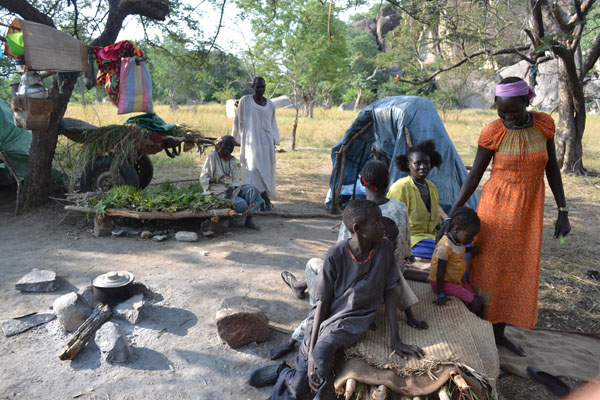
With Sudanese government-sponsored violence and “forced starvation” stretching well into a second year in the embattled Southern Kordofan and Blue Nile states, a group of more than 60 scholars specializing in genocide studies appealed to U.S. leadership to act on its “moral authority” to deliver food aid to civilian populations.
“The continuing multiple atrocities amount to at least crimes against humanity. This, in and of itself, is alarming,” the letter read. “Sufficient evidence exists for us to believe the Sudanese regime is attempting to annihilate those whom the government suspects of supporting the Sudan People’s Liberation Movement-North’s (SPLM-N) aims. Hence many local people are automatically targeted regardless of their true political affiliations.”
The group of 66 scholars, representing institutions and universities from the United States, Canada, Slovenia, Israel, the United Kingdom, Germany, Bosnia, United Kingdom, Australia, The Netherlands, Denmark, and Brazil, sent the letter to President Obama, Secretary of State Clinton, U.N. ambassador Susan Rice, and Special Assistant to the President Samantha Power—all of whom have been outspoken about the importance of the “responsibility to protect.”
The letter calls for the United States to create a humanitarian corridor by land and air to access civilian populations devastated by the Sudanese government’s blockade of assistance. The scholars commended the U.S. government for providing aid to refugees who have crossed into South Sudan and noted that an agreement was signed in Addis Ababa in August to permit access to the conflict zones. However, “the Bashir regime’s track record leads us to fear it will interfere with aid delivery to those in most need,” the scholars warned.
The recent humanitarian statistics released by the U.N. from Southern Kordofan and Blue Nile paint a dire picture, even as they are vetted by the Sudanese state agencies. An estimated 16,800 people were newly displaced by fighting in the El Moreib village, according to the state-run Humanitarian Aid Commission—an area that had never previously seen fighting near the border with Northern Kordofan state. The humanitarian bulletin touted the delivery of food to 32,000 people in the Southern Kordofan capital of Kadugli who were displaced by earlier fighting. However, there are an estimated 200,000 to 300,000 people who face “imminent starvation” due to the restricted access to the Nuba Mountains, the scholars noted, citing the U.N. estimate for the number of displaced people in the region.
Furthermore, the conditions in Yida, the largest camp in South Sudan hosting refugees fleeing violence in Southern Kordofan, are grave, despite the relative access. Mortality rates remain “above emergency thresholds,” the U.N. reported at the end of August, with most deaths caused by diarrhea and malnutrition, health conditions often triggered by the circumstances in the areas from which the refugees fled. But the number of refugees arriving in the camp has dropped significantly, as flooding has made the route out of Southern Kordofan and Blue Nile impassable.
Urging the American leaders to use U.S. economic and diplomatic leverage to deliver aid to these besieged communities even in the face of Khartoum’s resistance, the letter’s authors did not mince words when they described what is at stake:
We strongly urge you to act now to stave off the starvation of an entire people. Nothing would speak louder to the United States’ concern for the protection of international human rights than an immediate operation to deliver aid to the Nuba Mountains people while they are still alive and able to be helped.
Photo: Civilians seek shelter under trees in Blue Nile (Enough / Nenad Marinkovic)

